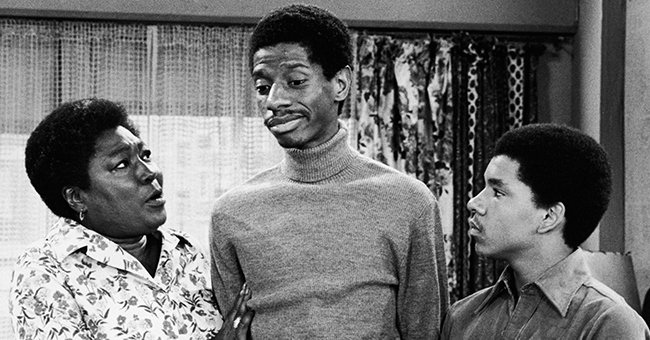
'Good Times's' Esther Rolle Cared How On-Screen Children Looked despite Having None in Reality
Esther Rolle was a stage actress who joined the cast of the '70s series "Maude" and "Good Times" under the condition that her character wouldn't be stereotypical. She left a legacy in Hollywood for being outspoken and fighting black stereotypes.
Esther Rolle made television history when she took part in the first series to portray a black family with a two-parent unit, alongside actor John Amos, who gave life to Florida Evans' husband, James.
Although Rolle's character was a maid, she fought hard to slam the stereotypes surrounding black characters on television, making her an outspoken, strong-willed individual. Here's a glimpse into her life and outstanding Hollywood career.
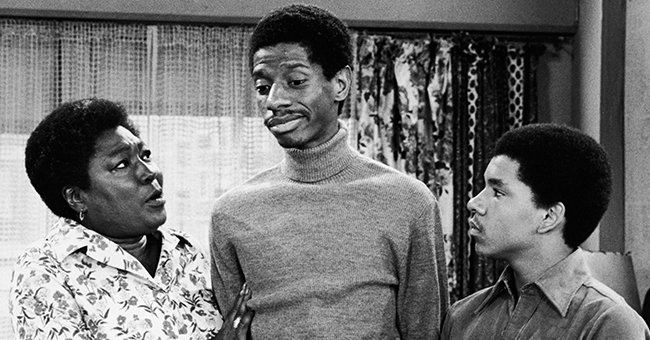
Esther Rolle, Jimmie Walker, and Ralph Carter during a scene from the series 'Good Times,' September 1979. | Source: Getty Images
ESTHER ROLLE'S EARLY LIFE
Born into a family of sharecroppers in Pompano Beach, Florida, Rolle was the tenth of 18 children. "We worked in the fields as children, but daddy made us promise never to be domestics because he said, 'I can't protect you in other people's houses," she once said.
After graduating, she moved to New York following her sister, Rosanna Carter, to become an actress. She became one of the first members ot the Negro Ensemble Company and the Asadata Dafora's dance troupe. In 1958, she appeared alongside her sister in the revival of Asadata Dafora's "Zunguru."
She also took part in stage productions like "Summer of the 17th Doll," "Man Better Man," "Day of Absence," "The Blacks," "Blues for Mister Charlie," "A Raisin in the Sun," "The Amen Corner," and "Don't Play as Cheap."
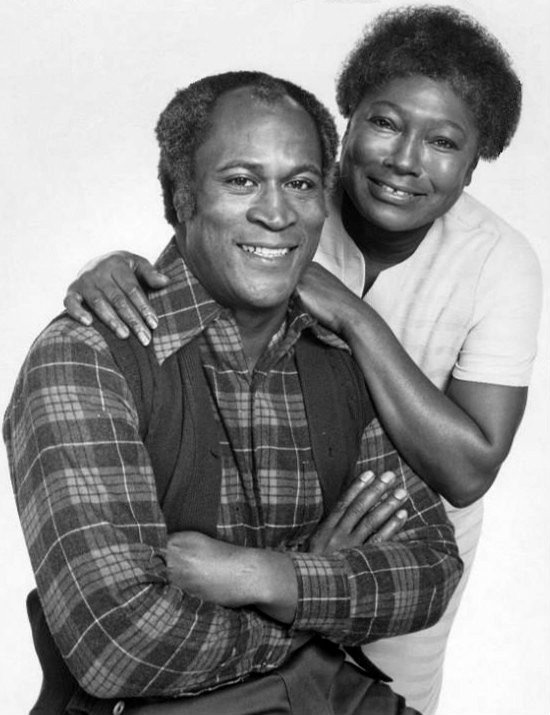
John Amos and Esther Rolle, 1974. | Photo: Wikimedia Commons Images
According to Sharonda Richardson, the city's development and outreach consultant for Cultural Affairs, everyone knew that Rolle was going to make it big in the entertainment industry. She said:
"It was very clear from talking to her siblings that she was the one who naturally grabbed theater and the arts by the horns and created the life and legacy that we all know and love her for."
It was during a play that producer Norman Lear discovered Rolle. As he tried to lure her into television for "Maude" in 1972, Rolle accepted with one condition: her character had to have some actual development and not become just "another Hollywood maid."
LIFE ON TELEVISION
"Maude" became a success, and Florida Evans was so loved by the audience that soon, the producers started talking about a spin-off. By 1974, Rolle had become the star of "Good Times," which followed the life of a black family of five.
It featured the life of the Evanses -- a strong and somewhat conservative Florida mom, an honest and hard-working dad, and their children. Both Rolle and Amos had high expectations of the show, as they wanted to portray the depth of the problem of a black family using humor, but without landing on mockery.
However, their expectations of the show were soon crushed when the character of Jimmie Walker, J.J.Evans Jr., started to outshine the rest with his stereotypically buffoonish behavior.
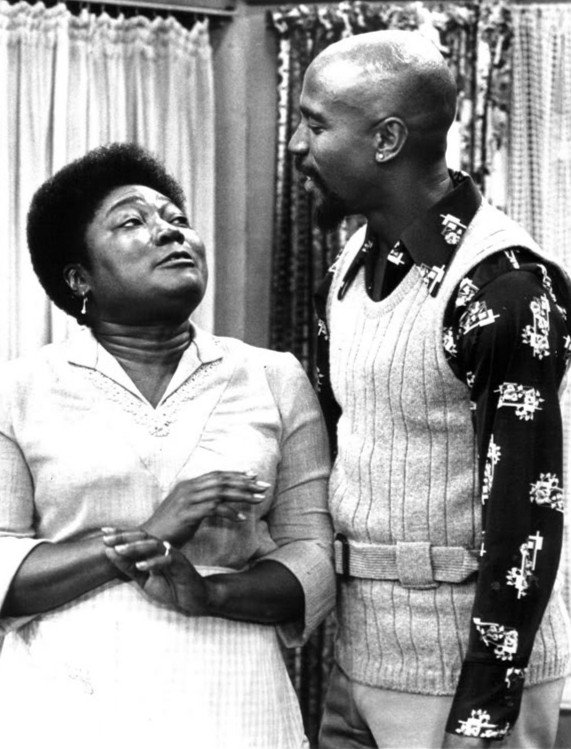
Louis Gossett, Jr. as Florida's brother, Wilbert and Esther Rolle. | Photo: Wikimedia Common Images
While Amos was fired from the show after its third season for speaking out and calling out the writers and producers about it, Rolle quit the show at the end of its fourth season. She said:
"He's 18, and he doesn't work. He can't read or write. He doesn't think. The show didn't start out to be that. [...] They have made him more stupid and enlarged the role."
According to the star, "I resent the imagery that says to black kids that you can make it by standing on the corner saying 'Dyn-omite!'" However, the man behind the show believed that the character's traits were best for the show ratings.
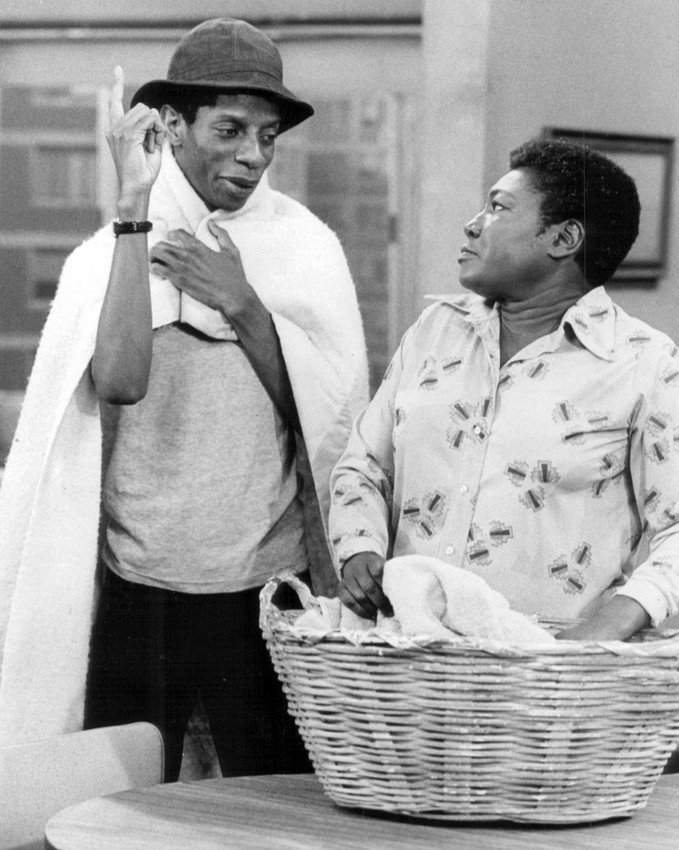
Jimmie Walker and Esther Rolle, 1974. | Photo: Wikimedia Commons Images
ROLLE'S DEPARTURE
When ratings went down after Rolle's departure, the producers decided to comply with her demands, and she returned to the show in its sixth season, while J.J was reformed and became a more responsible character.
But despite Rolle's return, the show didn't recover from its low ratings and was canceled after its sixth season. Rolle went on to appear in several films, including "Summer of My German Soldier," for which she earned an Emmy Award for Outstanding Supporting Actress in a Miniseries or a Movie.
She also appeared on "I Know Why the Caged Bird Sings," "Rosewood," and TV series like "The Incredible Hulk," "Flamingo Road," and "Murder, She Wrote." In 1990, Rolle received the NAACP's Civil Rights Leadership Award for her arduous work raising the image of black people.
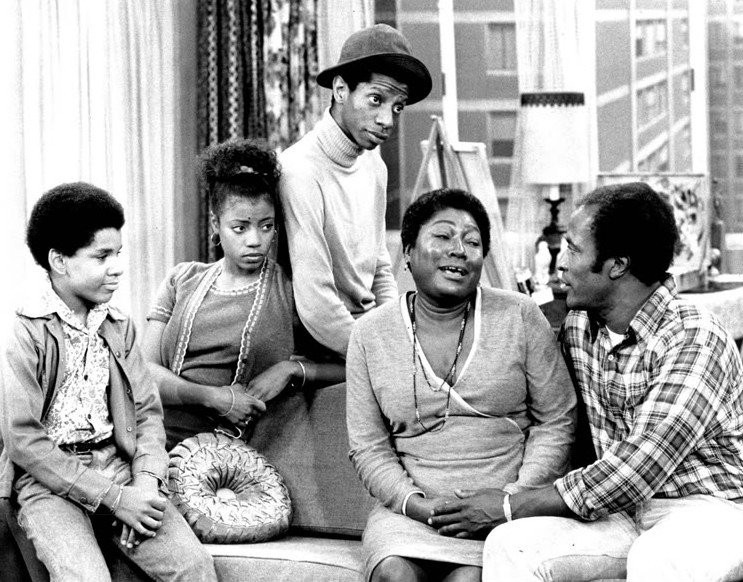
The Evans Family in "Good Times." | Photo: Wikimedia Common Images
A WOMAN OF GOOD MORALE
In a 1990 interview, she revealed why she refused to "sell out" to the Hollywood stigma of black people. She, as told by the Washington Informer, said:
"I'm glad to take on the role of a domestic because many of your Black leaders, your educators, your professionals, came from domestic parents who made sacrifices to see that their children didn't go through what they did."
Aside from her Hollywood legacy, Rolle was also a kind woman behind the scenes. She would often invite neighborhood kids into her residence to converse. When asked why, she said, "You have to take time out to do something meaningful."
PERSONAL LIFE
Rolle was married to Oscar Robinson from 1955 to 1975 and never had any children. Rolle passed away on November 17, 1998, in Los Angeles, at the age of 78. She had been dealing with diabetes and had been under dialysis at the time.
Her publicist, Larry Calhourn, said that the cause of death had yet to be determined and that one of the last things she did was to donate to a local black theater.
Around the time of her 100th birthday, the people of Pompano Beach celebrated her life and career through several organized events, including three virtual shows that honored her life and legacy. The festivities ran for a month-long with several artists contributing to the events.
